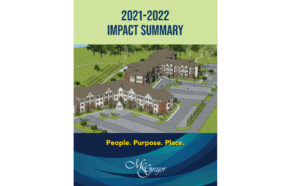
Discussing Future Hospice Care Preferences for a Loved One
Tips for Having an Open and Honest Discussion
Starting a conversation about your parents’ or loved one’s feelings about hospice care can be challenging, but it’s crucial to have an open and honest discussion about their wishes and preferences as early as possible. The best time to have a conversation about hospice is well before your parent or loved one is ill or reaches a point in their life when hospice is needed—it is never too early to have a conversation about your loved one’s end-of-life care wishes and preferences.
Here are some steps to approach the conversation:
Choose the right time and place.
Find a comfortable and private setting where you can have an uninterrupted conversation. Avoid discussing sensitive topics during family gatherings or when there are distractions.
Be empathetic and compassionate.
Begin the conversation by expressing your love and concern for their well-being. Acknowledge that discussing end-of-life care is difficult but necessary to ensure their wishes are respected.
Ask open-ended questions.
Instead of making assumptions, ask open-ended questions to understand their thoughts and feelings about their current health and what they want for their future care. For example, you could ask, “How are you feeling about your health these days?” or “Have you thought about the kind of care you’d prefer if your health worsens?”
Listen actively.
Give your loved one the space to express their thoughts and emotions. Listen attentively and without judgment. Validate their feelings and let them know you are there to support them.
Educate them about hospice care.
Many people have misconceptions about hospice care, so it’s essential to provide accurate information. Explain that hospice focuses on comfort and quality of life during the final stages of an illness, not only for the individual who is ill but for the entire family. McGregor’s Hospice Services are available for those living at McGregor as well as others living in the local Cuyahoga County community.
Involve other family members.
If appropriate, consider having a family meeting to discuss your loved one’s wishes collectively. This can provide support for everyone involved and ensure that decisions are made with everyone’s input.
Understand their values and priorities.
Learn about what matters most to your loved one in their final days. What activities or aspects of life bring them joy? Understanding their values can help shape the type of care they receive.
Discuss medical preferences.
Talk about their preferences for medical treatments and interventions. Do they wish to receive all possible treatments, or would they prefer to focus on comfort care if their condition worsens?
Explore end-of-life documents.
Inquire about any advance directives, living wills, or healthcare power of attorney documents they may have. If these documents don’t exist, discuss the importance of creating them to ensure their wishes are legally documented.
Review their financial and legal matters.
Discuss their financial situation and ensure that they have a plan in place to handle expenses related to end-of-life care.
Respect their decisions.
Ultimately, your loved one’s wishes should be respected and honored, even if they differ from your own preferences. Ensure that all family members understand and support their decisions.
Revisit the conversation if necessary.
This conversation may be ongoing. As your parent’s health evolves, it’s essential to revisit the discussion to ensure their wishes are still accurately represented and respected.
Remember, starting this conversation might be difficult, and emotions can run high. Be patient and understanding, and seek professional support if needed, such as a counselor, social worker, or a hospice care specialist at McGregor, who can provide guidance and facilitate the conversation.


